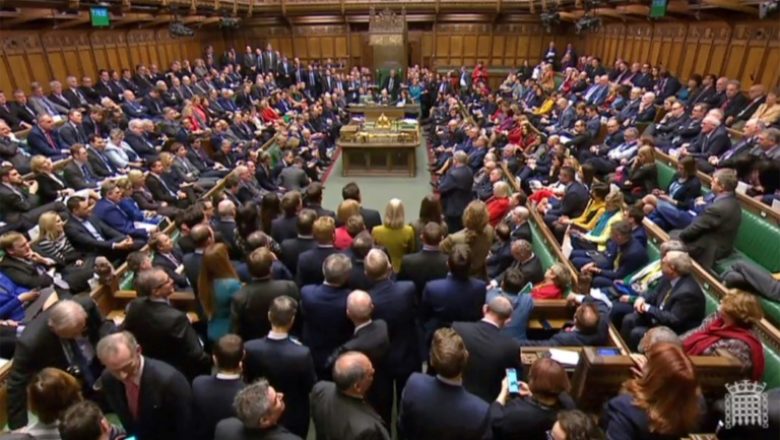AFP |
Britain’s drawn-out drama around Brexit, which is set to take a decisive twist on Tuesday with a crucial vote in parliament, has featured a colourful cast of characters — crashing or catapulting their careers.
Here are some of the public figures who have played pivotal roles in events.
Nigel Farage
A eurosceptic member of the European Parliament and former leader of the UK Independence Party (UKIP), Farage has been campaigning to leave the European Union for 25 years. A surge in support for his anti-establishment party helped force then-prime minister David Cameron to call the 2016 referendum on Britain’s EU membership.
A businesswoman and leading anti-Brexit campaigner, Miller challenged the way the government was implementing Brexit.
But Farage, a highly divisive figure even within the pro-Leave camp, was widely condemned for his focus on mass immigration. Now outside UKIP, he has launched the Brexit Party under the slogan “It’s time to save Brexit”, attracting moderate fleeing UKIP members.
Read more: Hard, soft and BRINO: the Brexit glossary
David Cameron
Prime minister for six years from 2010, Cameron launched a referendum on EU membership and then led the Remain campaign. When the country backed Brexit, he had little choice but to stand down, admitting he could not be “the captain that steers our country to its next destination”.
Cameron has since stayed largely out of the limelight, penning his memoirs. He made a rare comment in January that he did not regret calling the referendum but deeply regretted the Remain defeat and the ensuing problems.
Theresa May
The prime minister quietly supported Remain in the 2016 referendum but emerged as the “safe hands” candidate to lead the governing Conservatives after Cameron’s departure.
Britain’s drawn-out drama around Brexit, which is set to take a decisive twist on Tuesday with a crucial vote in parliament, has featured a colourful cast of characters.
May vowed Britain would leave the single market and end freedom of movement, but her negotiating position was severely weakened when she decided to hold a snap general election in June 2017, which saw the Conservatives lose their parliamentary majority.
She has since faced near-constant rebellions and chastening defeats, but has somehow defied the odds and is still battling to get her legacy-defining deal though parliament.
Read more: Britain, EU hit brick wall on Brexit deal
Jeremy Corbyn
The veteran socialist rose from a career of leftist obscurity to win the leadership of the main opposition Labour Party in 2015. Thanks to grassroots support, he survived a giant internal coup by his own MPs over his lukewarm support for Labour’s Remain position in the EU membership referendum.
He has since been criticised by both the pro- and anti-EU camps for sitting on the fence over Brexit. After failing to secure a general election or parliamentary support for Labour’s preferred Brexit, the party’s position defaulted to very cautious backing for a second referendum, including a Remain option.
Boris Johnson
The former London mayor was a key figurehead in the official Leave campaign, urging Britain to “take back control” from Brussels. His charisma and rhetoric ensured headlines and won over many voters. After quitting the race to replace Cameron as PM, he was made foreign secretary by the new leader May.
May vowed Britain would leave the single market and end freedom of movement, but her negotiating position was severely weakened.
But his two-year stint ended when he resigned over her Brexit strategy. However, he remains a high-profile character, using his weekly column in The Daily Telegraph newspaper to assail May’s approach.
Johnson has recently tamed his wild blond locks, shrunk his waistline and gone public with his new partner, raising suspicions that he is lining himself up as a contender to replace May.
Read more: UK, EU end Brexit talks with no sign of breakthrough
Jacob Rees-Mogg
Dubbed “the MP for the 18th century”, the erudite, ultra-Conservative backbencher leads the eurosceptic European Research Group of 60 to 85 Conservatives who back leaving with no deal.
He failed to unseat May in December over Brexit. The ERG’s refusal to back May’s deal, critically over the Irish backstop, has seen it stall. He has shown signs of softening and securing the ERG’s support will be crucial in deciding whether a deal gets through on Tuesday.
Gina Miller
A businesswoman and leading anti-Brexit campaigner, Miller challenged the way the government was implementing Brexit — and scored a victory by winning MPs the right to vote on formally starting to leave the EU.
Despite facing abuse and threats, she then launched the “Best for Britain” anti-Brexit pressure group in 2017, fundraising for pro-EU candidates in the June general election. She remains a leading campaigner for a second referendum.
© Agence France-Presse














